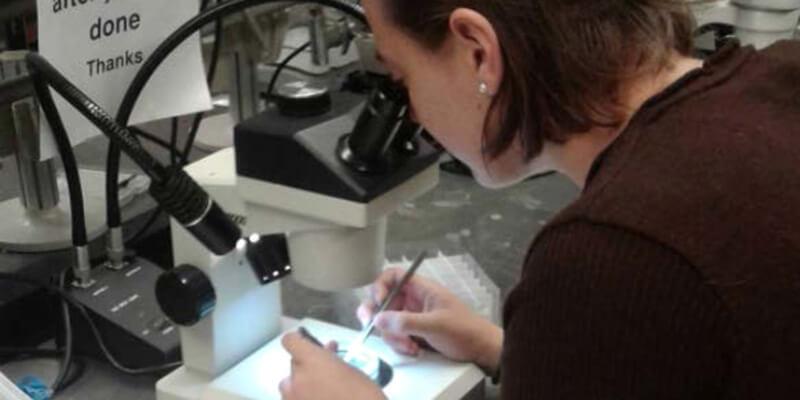Dear Donors,
During the summer of 2017, I had the opportunity to complete a student internship project through the Wallin Lab at the George D. Aiken Forestry Sciences Laboratory. By working under PhD candidate Sarah Pears, I was able to contribute to her research on the effects of windfall salvage harvest and clearcutting on forest stands. As a student with an interest in arachnology, I was excited to be offered the task of sorting, identifying, and analyzing samples of spider bioindicators. In Vermont and worldwide, windstorms cause significant disturbance to a variety of forests, and the resulting management practices are prone to disturbing system biodiversity. Bioindicators, organisms whose presence reflect ecosystem health and potential for growth, can display trends in biodiversity.
Spiders are often used, and make excellent bioindicators, because of their small size and their many ecological connections with other integral parts of a forest system. The purpose of this research is to use spider diversity as an indicator of community biodiversity responding to the effects windstorm and salvage harvests have on forest ecosystems. In examining the results of this research, conclusions about sustainable and effective forest management practices can be made. These can result in better direction for future studies, new and improved methods for forest maintenance, and even a push for legislation that better supports Vermont’s beautiful and ecologically important forest systems.
As a summer intern, I was given several months of hard data (roughly 2,000 specimens of spiders) and asked to sort and identify each individual before using r programming to observe trends and differences between site conditions and writing a formal scientific paper describing my findings. Not only did I learn essential tools and skills for scientific exploration and the process of science, but I was able to have the experience of and gain connections from working in a collaborative lab space on a unique and independent project. I was able to learn more about local Vermont spider species, the habitats they live in, and the natural disasters that threaten them.
I have greatly enjoyed and benefited from this summer internship experience, and I am so fortunate to have been able to pursue a passion and interest. I will remain a contingent of the Wallin lab as a result of this project and am looking forward to more research opportunities in the future. The more I learn about the intricacies of natural systems and species, the more I am in awe of them.
Thank you so much for giving me the opportunity to explore and learn and to move forward in the effort to preserve the beautiful and vast set of ecosystems that are Vermont forests.
Sincerely,
Zoe Albion
